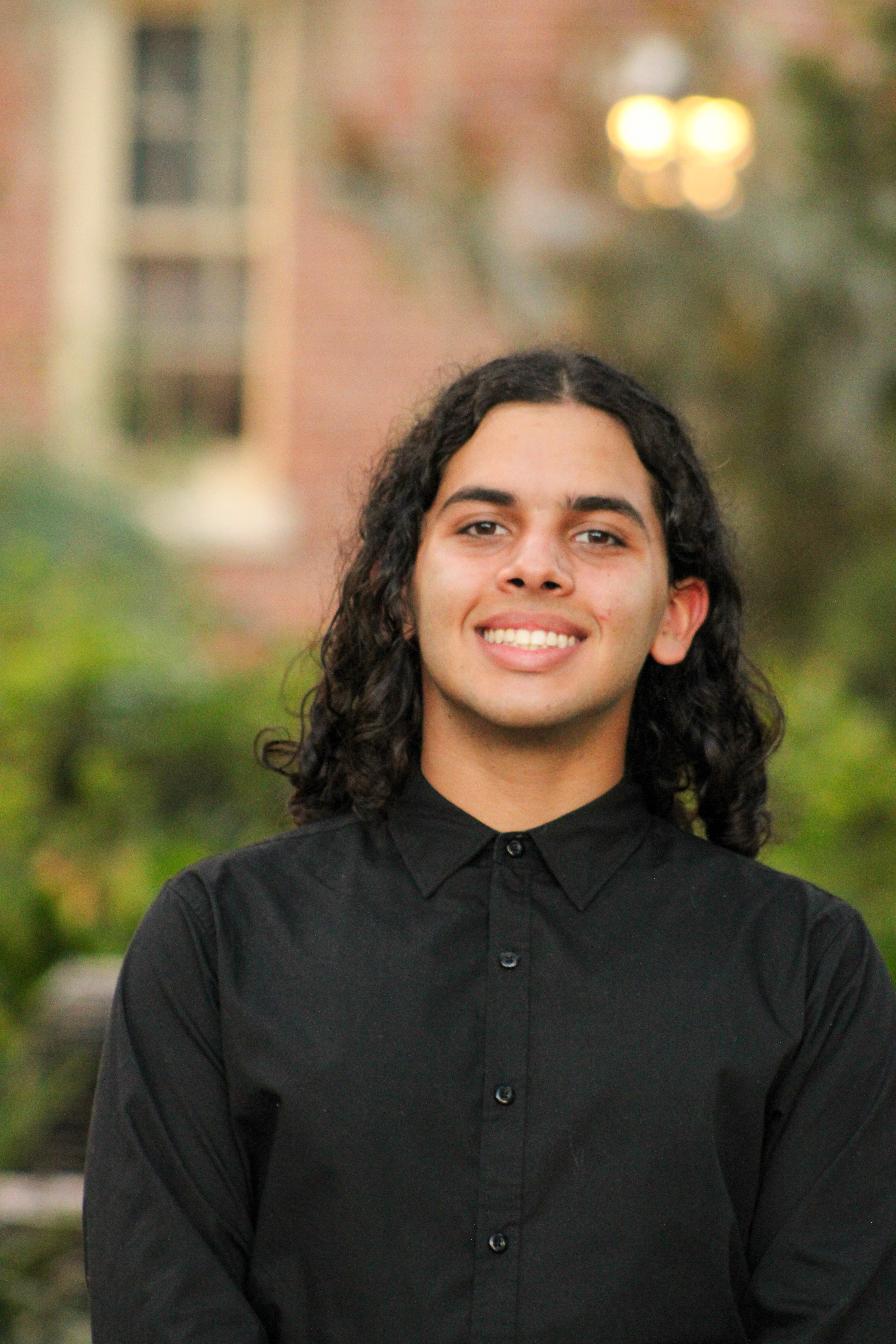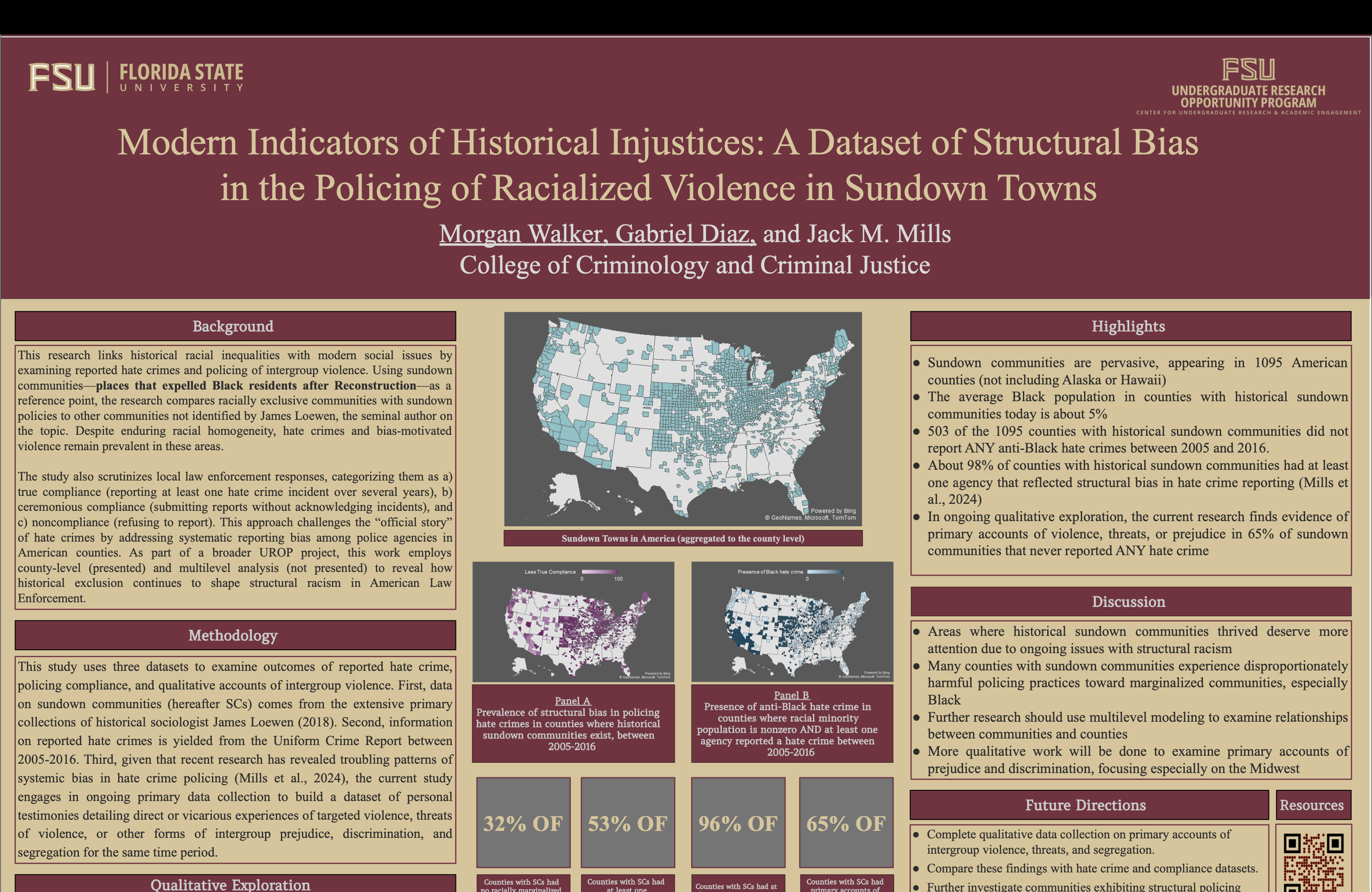Research Symposium
25th annual Undergraduate Research Symposium, April 1, 2025
Gabriel Diaz Poster Session 4: 3:00 pm - 4:00 pm/ Poster #213

BIO
Gabriel is a Criminology student with a double major in Interdisciplinary Social Science. His primary research interests are social causes and repercussions for crime and methods of crime prevention.
Modern Indicators of Historical Injustices: A Dataset of Structural Bias in the Policing of Racialized Violence in Sundown Towns
Authors: Gabriel Diaz, Jack MillsStudent Major: Criminology
Mentor: Jack Mills
Mentor's Department: Criminology Mentor's College: Florida State University Co-Presenters: Morgan Walker
Abstract
A substantial component of racism in American history manifests as residential segregation and exclusion. Yet, few works have explored the deep history of sundown towns—places that enforced the absolute exclusion of Black people and other marginalized groups. The research builds from the foundation of historical sociologist James Loewen, who identified more than 2,000 racially restrictive communities, exploring variation in intergroup violence. Specifically, the research examines hate crimes—offenses committed because of a victim’s perceived or actual identity—in these communities, compared to areas not identified by Loewen. There are three phases of analyses. First, the study compares sundown towns to other communities by the prevalence and frequency of hate crimes. While there are tests included for all hate crimes, there is a specific focus on offenses committed because of a victim’s racial identity. Second, the research validates these quantitative tests through qualitative accounts of direct or vicarious experiences of targeted violence/threat of violence, social prejudice, and official discrimination. Generally, these findings suggest a mismatch between the “official” and “people’s” stories of hate crimes in these historically racist communities. Third, in light of this disjuncture, it examines structural bias in American law enforcement’s reporting of hate crimes in racially exclusive communities relative to communities not identified in the original Loewen dataset. The results point to systematic omissions of hate crimes in towns with pasts of official exclusion through sundown ordinances and practices. This illustrates the long-lasting effects of racism on the community and place, signaling immediate attention from policymakers and academics.
Keywords: Hate crimes, police, discrimination, sundown town

